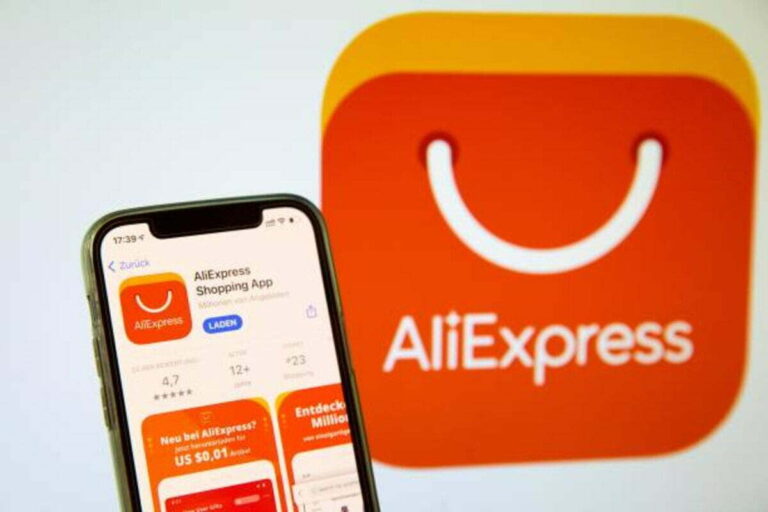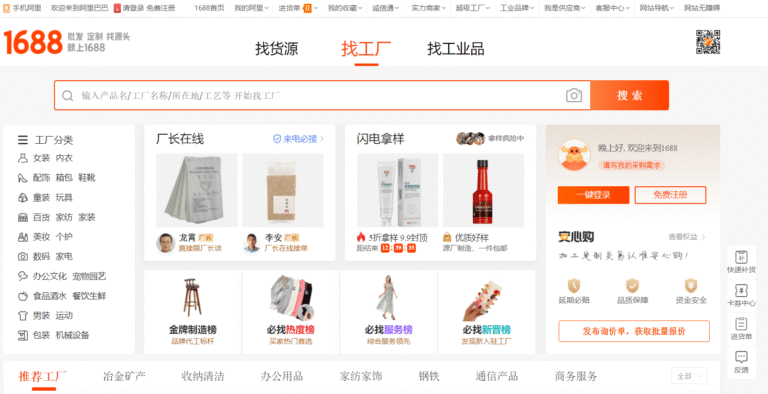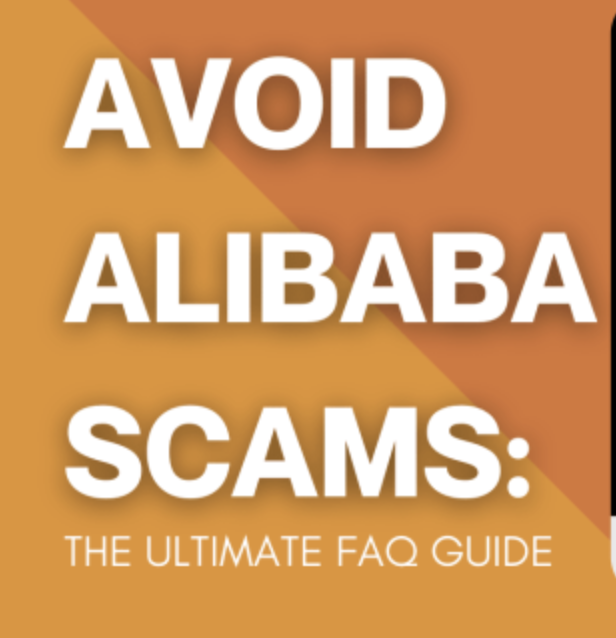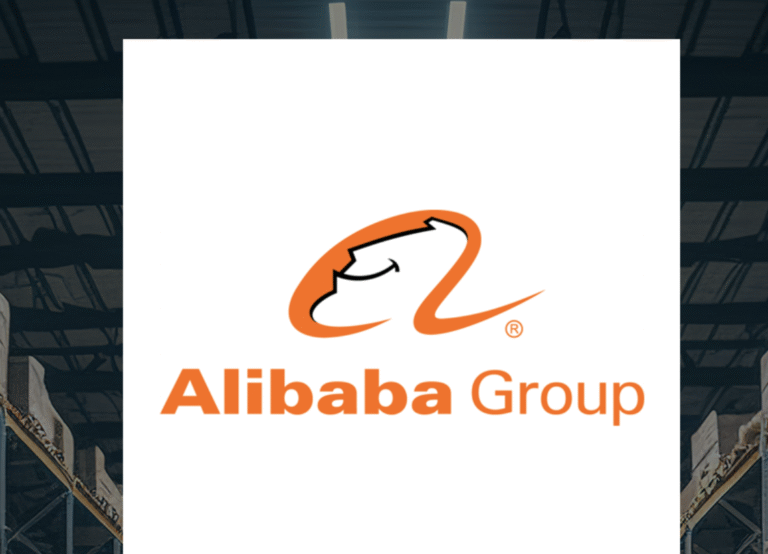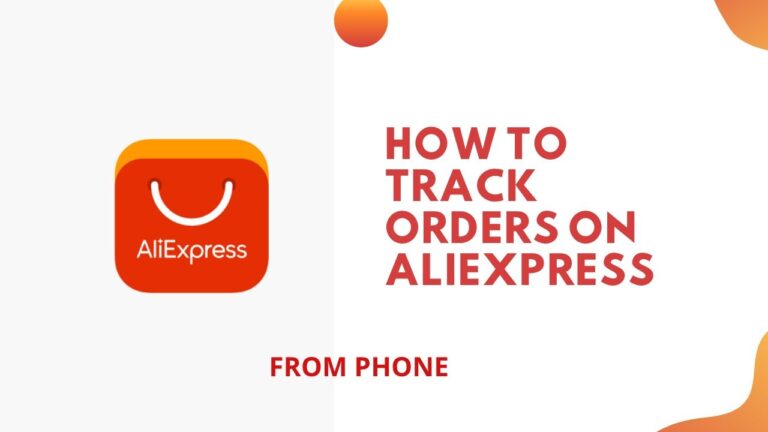Is AliExpress Legit? 10 Tips to Avoid Scams
Introduction to AliExpress and Its Global Reach
What is AliExpress?
AliExpress is a global online retail platform launched by the Chinese tech giant Alibaba Group in 2010. It connects international buyers directly with Chinese manufacturers and small businesses, offering a wide range of products—from fashion and electronics to home goods and novelty items—often at jaw-droppingly low prices.
With millions of listings, it’s a virtual megamall where almost anything you can imagine is just a few clicks away.
But here’s the kicker—AliExpress is not a store in the traditional sense. It’s more of a marketplace, like eBay, where individual sellers and shops offer their own items. That distinction is crucial.
Table of Contents
It means your shopping experience depends not just on AliExpress, but also on the reliability of the seller you choose.
Which is why the question “Is AliExpress legit?” isn’t so black and white.
Why Do Shoppers Flock to AliExpress?
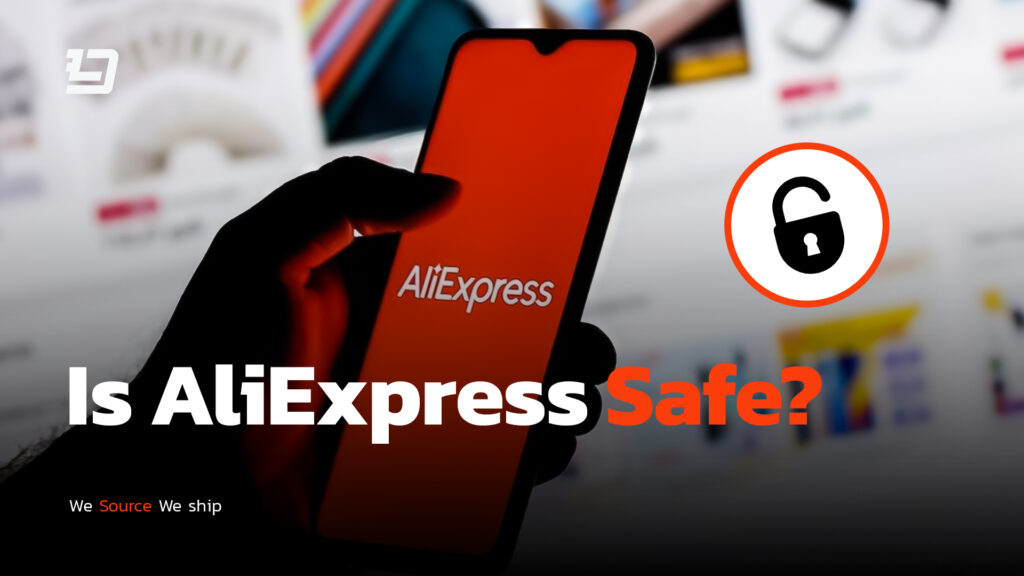
There are some pretty obvious reasons people love AliExpress. First and foremost—price. Products on AliExpress are usually way cheaper than those found on Amazon, Walmart, or even eBay. That’s because many items come straight from the factory with minimal markup. You’re often buying the exact same products retailers sell—just without the branding or extra cost.
Then there’s the sheer variety. Whether you’re looking for a smartwatch under $20, quirky kitchen gadgets, or trendy clothing, chances are you’ll find it on AliExpress. And let’s not forget about free worldwide shipping on many items. That might sound too good to be true—but it’s real, although slow.
Common Concerns: Is AliExpress a Scam or Safe Marketplace?
Let’s be clear: AliExpress itself is not a scam. It’s a legitimate business backed by Alibaba Group, one of the most powerful tech companies in China. That said, some of the sellers on the platform might not be as trustworthy as you’d hope. Because it’s an open marketplace, there’s room for both honest entrepreneurs and shady vendors.
Buyers have reported everything from fake tracking numbers and counterfeits to no-shows and poor-quality products. But with the right knowledge and a few smart precautions (we’ll get to those shortly), you can navigate AliExpress confidently and safely.
So yes, AliExpress is legit, but that doesn’t mean it’s risk-free. Just like shopping on Craigslist or Facebook Marketplace, you need to do your homework.
Understanding How AliExpress Works
The Business Model: Why It’s Different from Amazon or eBay
To understand AliExpress, you need to understand its business model. AliExpress doesn’t hold inventory, ship items, or offer customer service for individual orders. It simply connects buyers with third-party sellers, many of whom are manufacturers or resellers based in China or nearby regions.
Unlike Amazon, which often fulfills and ships its own products through FBA (Fulfilled by Amazon), AliExpress sellers handle their own inventory and shipping. That’s why shipping times can range from 2 weeks to 2 months.
Because there’s no middleman markup, prices are often lower. But that also means buyer protection policies and customer support can be weaker. If something goes wrong, you’ll need to open a dispute and negotiate with the seller or AliExpress’ customer service team.
Also important: language and cultural differences. Many sellers are Chinese-based, which can sometimes lead to communication hiccups or misunderstandings in product descriptions. It’s part of the reason scams can slip through the cracks.
Buyer Protection: What’s Covered and What’s Not

One of the key things that makes AliExpress safer than, say, buying from an unknown site is its Buyer Protection policy. This is AliExpress’ way of saying, “We’ve got your back”—but only to a certain extent.
Here’s what it typically covers:
- Full refund if you don’t receive your item within the guaranteed delivery time.
- Full or partial refund if the item is not as described—whether it’s damaged, missing parts, or the wrong color/size.
- A dispute resolution system where you and the seller try to resolve the issue, and AliExpress steps in if needed.
However, there are catches. You must act within the protection window, usually 15 days after the order is marked as delivered. Wait too long, and you might lose the chance to get a refund. Also, subjective complaints (like “I just didn’t like it”) aren’t always covered.
So while AliExpress has solid buyer protection, it’s not foolproof. You still need to be proactive and cautious—especially when dealing with new or unrated sellers.
Is AliExpress Legit? A Deep Dive
Verified Sellers vs. New Sellers
One major way to gauge whether a purchase will go smoothly is by looking at seller profiles. AliExpress displays detailed seller information, including how long they’ve been active, their feedback rating, and how well they respond to disputes.
- Top-rated sellers often have gold badges and thousands of reviews.
- New or unrated sellers may not have enough of a track record to trust just yet.
Here’s a pro tip: Stick with sellers who have at least a 95% positive rating and over 1,000 orders completed. These vendors are much less likely to scam you.
Some shops also hold “AliExpress Select” or “Top Brand” status, which means they’re vetted for high-quality service. These labels can be trusted more than random sellers with no history.
Customer Reviews and Product Ratings
This is your secret weapon when buying on AliExpress—real reviews from real buyers. Most listings have a rating out of 5 stars, along with written reviews, photos, and even videos from previous customers.
When scanning reviews:
- Look for reviews with photos, as these give you a real sense of what to expect.
- Avoid products with lots of 1-2 star ratings complaining about wrong sizing, poor quality, or items never arriving.
- Be cautious of reviews that seem fake or overly generic.
Also, check the number of orders a product has. If something has 10,000+ orders and a 4.8-star rating, that’s usually a green light.
Payment Security and Encryption
One area where AliExpress shines is payment security. All payments are processed through a secure checkout system with SSL encryption, and sellers don’t see your payment details.
AliExpress also offers Escrow protection, meaning they hold your money until you confirm that you’ve received the product and are satisfied. Only then is the payment released to the seller.
This system is designed to protect buyers, and it works—as long as you don’t confirm receipt before actually getting the item.
Avoid paying off-platform via bank transfers or Western Union. If a seller asks for that—run.
10 Tips to Avoid Scams on AliExpress
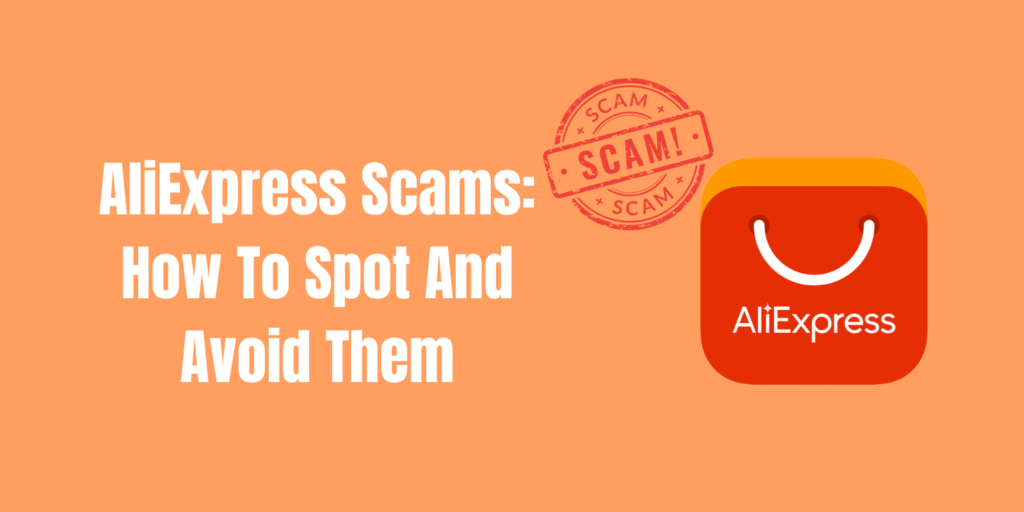
Tip #1: Check Seller Ratings and Feedback Thoroughly
Before you hit that “Buy Now” button, spend a few minutes investigating the seller. This isn’t optional—it’s essential. Each seller on AliExpress has a profile page with ratings, reviews, and information about how long they’ve been on the platform.
Here’s what you should look at:
- Feedback Score: This is based on the number of positive reviews a seller has received. A score above 90% is generally considered good.
- Number of Orders: More orders usually indicate experience and trustworthiness. Thousands of completed orders is a green flag.
- Customer Reviews: These are pure gold. Dive deep into the reviews to see what people are actually saying. Are they happy with the quality? Did the product match the description?
Look out for these red flags:
- A new seller with zero feedback.
- Tons of 5-star reviews but no written content—this could indicate fake reviews.
- Consistent complaints about delivery time or receiving the wrong item.
Remember, your best defense against scams is information, and it’s right there in the reviews.
Tip #2: Always Read Product Descriptions in Full
This might seem obvious, but it’s shocking how many buyers skip this step and end up disappointed. Product descriptions on AliExpress can be long and technical, but they’re also the only way to know exactly what you’re getting.
Pay special attention to:
- Dimensions and sizing (especially for clothing and shoes)
- Material and components
- Inclusions (what exactly comes in the box?)
- Color variations and model types
Also, double-check the product images. Sometimes what’s shown in the photos isn’t what’s being sold—it might just be a “style inspiration” or stock image. Look for images labeled as “real photos” or those submitted by past buyers in the review section.
If the description seems vague or full of typos and broken English, that could be a sign the seller is careless—or worse, deceptive.
Tip #3: Use Secure Payment Methods Only
AliExpress supports several secure payment options including:
- Credit/Debit Cards
- PayPal (in select regions)
- AliPay
The safest way to pay is via credit card or AliPay through the platform itself. This way, your transaction is encrypted, and you’re protected by the site’s Buyer Protection system.
Never, ever pay a seller outside the AliExpress platform, no matter what reason they give. If a seller asks you to use PayPal off-site or send money through a bank transfer or crypto wallet—that’s a scam.
Also, avoid using virtual debit cards that don’t support chargebacks. If something goes wrong and you need to file a dispute, a credit card offers a safety net that prepaid cards don’t.
Tip #4: Beware of Prices That Are Too Good to Be True
We all love a good deal—but if something looks suspiciously cheap, it probably is. This is one of the oldest tricks in the scammer playbook: lure buyers in with jaw-dropping prices, then deliver junk—or nothing at all.
If you see an iPhone for $50 or designer sneakers for $20, take a step back. Use common sense. Compare prices across sellers and platforms. If the average price for an item is $60 and one seller is offering it for $8, that’s a huge red flag.
While many items on AliExpress are legitimately cheap, always ask yourself: “Is this price realistic?” If the answer’s no, keep scrolling.
Tip #5: Look for Buyer Protection Badge
AliExpress clearly marks items that come with Buyer Protection, including:
- On-time delivery guarantee
- Return/refund policy
- Genuine product certification (for certain items)
These badges are more than just icons—they’re your insurance policy. Buying items with these guarantees increases your chances of a smooth, scam-free shopping experience.
If a product or seller doesn’t mention buyer protection or return policies, it’s better to avoid them altogether. In the rare case something goes wrong, you’ll have very limited options for recourse.
Tip #6: Use a Credit Card or PayPal (if available)
When shopping on AliExpress, the method you use to pay matters just as much as the seller you buy from. Using a credit card or PayPal (where available) is one of the smartest things you can do to protect your money.
Here’s why:
- Credit cards offer chargeback protection. If something goes wrong and you can’t resolve it through AliExpress, you can contact your card issuer to dispute the charge.
- PayPal (available in some countries) adds another layer of buyer protection. PayPal’s dispute process is fast and favors the buyer in most clear-cut scam cases.
Avoid using:
- Wire transfers
- Direct bank deposits
- Cryptocurrency
- Western Union
Why? Because once you send money using those methods, there’s no way to get it back. If a seller asks you to pay off-platform with any of these methods, consider that your cue to walk away—it’s likely a scam.
The bottom line: Only pay through the official AliExpress checkout system. Stick to credit cards or PayPal, and you’ll have far more leverage if anything goes wrong.
Tip #7: Avoid Buying High-Risk Items
AliExpress is great for inexpensive gadgets, accessories, and fun stuff—but not for high-risk, high-value items. What do we mean by high-risk?
Examples include:
- Smartphones and laptops
- Luxury goods (e.g., watches, handbags, sneakers)
- Branded electronics (Apple, Sony, Samsung)
- Health-related items (e.g., supplements, skincare)
These items are often targeted by counterfeiters, and even when they’re legit, quality control can be inconsistent. Shipping fragile items long-distance can also result in damage.
High-risk categories also mean higher chances of:
- Receiving a knockoff instead of the real thing
- Losing money with little recourse
- Products being seized by customs if counterfeit
When it comes to big purchases or anything that involves performance, health, or safety, you’re better off shopping locally or from an authorized reseller. Let AliExpress be your go-to for low-cost, low-risk products where even if something goes wrong, the impact on your wallet is minimal.
Tip #8: Communicate with Sellers Before Buying
Before placing an order—especially a large or customized one—it’s a good idea to reach out to the seller directly. This step can help you avoid misunderstandings and also test how responsive and reliable the seller is.
What should you ask?
- Confirm product specs, size, or color.
- Ask about processing/shipping time.
- Inquire about warranty or returns, especially for electronics.
Use the AliExpress message system, not email or outside messaging apps. This keeps a record of the conversation, which can be crucial if there’s a dispute later.
Also, observe how quickly they reply and whether their responses are helpful or vague. A responsive, detail-oriented seller is far more likely to deliver quality service. On the other hand, if a seller takes days to reply or avoids your questions—that’s a red flag.
Smart buyers don’t skip this step. One quick message could save you a lot of stress down the road.
Tip #9: Take Screenshots of Your Purchase Details
It may sound a little over-the-top, but keeping a visual record of your order is a smart move, especially if you’re buying a higher-priced item or if the product page is a little confusing.
Before and after purchase, take screenshots of:
- The full product listing (especially images and descriptions)
- Seller ratings and store name
- Your order summary and payment confirmation
- Shipping and tracking updates
- Any messages exchanged with the seller
Why is this important? Because if something goes wrong, and the seller changes the product listing or removes the page, your screenshots serve as proof. You can upload them as evidence during the dispute process.
AliExpress disputes are often resolved based on documentation—so protect yourself with digital receipts. In the world of online shopping, it’s better to be overly cautious than completely helpless.
Tip #10: Understand the Refund and Dispute Process
AliExpress has a system in place to protect buyers, but it only works if you know how to use it.
Here’s a quick breakdown of the dispute and refund process:
- First Step – Contact the Seller: If there’s a problem (wrong item, delay, or damage), message the seller first. Many issues are resolved this way.
- Open a Dispute: If you don’t get a satisfactory response, click “Open Dispute” within the buyer protection period.
- Choose Your Refund Type:
- Full refund (for missing or undelivered items)
- Partial refund (for damaged or not-as-described items)
- Submit Evidence: Upload photos, tracking info, or screenshots that prove your claim.
- Wait for Review: The seller can accept or contest your claim. If you don’t agree, AliExpress will mediate and make a final decision.
Important tip: Don’t confirm receipt until you’re fully satisfied. Doing so ends your buyer protection, and it’ll be harder to get help afterward.
Also, keep an eye on the protection timer. If the window is about to expire and your package hasn’t arrived, open a dispute before it’s too late.
AliExpress isn’t perfect, but if you follow the rules, you’ll have a good shot at a fair resolution.
Real User Experiences: The Good, the Bad, and the Ugly
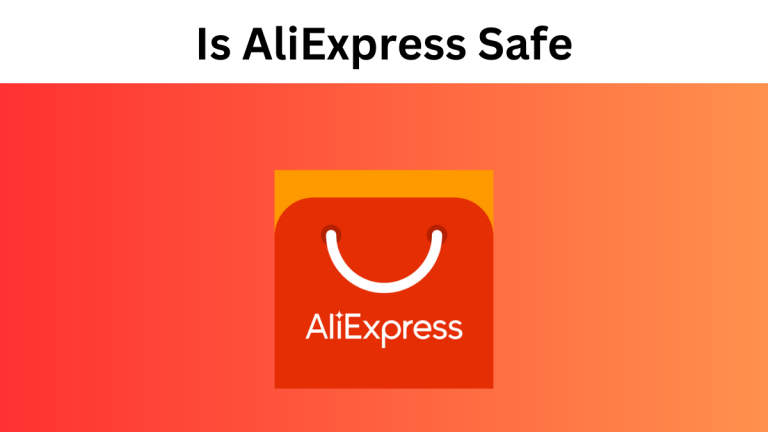
Positive Stories from Regular Buyers
Believe it or not, millions of people shop on AliExpress every month—and most of them receive their products without any issues. Tech bloggers, YouTubers, and everyday users have shared countless success stories about scoring awesome deals.
For instance:
- Some users have successfully built entire smart homes using cheap sensors and lights from AliExpress.
- DIYers love it for tools and parts they can’t find elsewhere.
- Fashionistas often buy trendy clothes and accessories for a fraction of Western prices.
A key factor in these success stories? They did their research. Most people who have great experiences know which sellers to trust, read reviews, and follow the exact tips you’re reading now.
Common Complaints and Pitfalls to Avoid
But let’s not sugarcoat it—AliExpress isn’t perfect. Complaints are common, especially among first-time buyers. Here are some of the most frequent issues:
- Shipping delays: Many packages take 3–6 weeks to arrive.
- Item not as described: Sometimes what arrives is clearly not what was promised.
- Counterfeit products: Brand-name items are often fake.
- Dispute challenges: The resolution process can be slow or frustrating.
The best way to avoid these headaches? Stick to trusted sellers, use secure payment methods, and don’t skip the product description or reviews. These are simple steps that can make all the difference between getting a great deal and wasting your money.
Common Complaints and Pitfalls to Avoid
But let’s not sugarcoat it—AliExpress isn’t perfect. Complaints are common, especially among first-time buyers. Here are some of the most frequent issues:
- Shipping delays: Many packages take 3–6 weeks to arrive.
- Item not as described: Sometimes what arrives is clearly not what was promised.
- Counterfeit products: Brand-name items are often fake.
- Dispute challenges: The resolution process can be slow or frustrating.
The best way to avoid these headaches? Stick to trusted sellers, use secure payment methods, and don’t skip the product description or reviews. These are simple steps that can make all the difference between getting a great deal and wasting your money.
AliExpress Shipping: What You Need to Know
Delivery Times: Standard vs. Premium Shipping
One of the biggest questions new users have is: How long does AliExpress take to ship? The short answer? It depends—on the seller, the shipping method, and your location.
AliExpress offers a few different shipping options:
- AliExpress Standard Shipping: This is the most common and cost-effective method. Shipping times range from 15 to 45 days, depending on your country.
- ePacket: A bit faster than standard, ePacket usually takes 7–20 days and is available for select countries.
- AliExpress Premium Shipping or DHL/FedEx: These are much faster, often taking 7–10 business days, but they come at a premium price.
Some products also ship from local warehouses in the US, UK, or EU. If you see a product labeled “Ships from United States” or “Ships from Spain,” you could receive it within 3–7 days—sometimes even faster.
So why the long wait for standard shipping? Most sellers use China Post or similar budget services to keep costs low. These packages take the scenic route—literally—before they reach your door. But that’s the trade-off for those rock-bottom prices.
If time is crucial, paying a little extra for faster delivery is often worth it.
Tracking Orders and What to Do If a Package Is Late
AliExpress provides a tracking number for most shipments, but updates can be spotty, especially with free shipping options. It’s not uncommon to see your package “stuck in transit” for a week or more.
Here’s how to manage expectations and stay informed:
- Use 17Track or ParcelApp to get better tracking information.
- Check updates daily—sometimes tracking systems lag behind.
- Set calendar reminders for when your protection period is about to expire.
If your order still hasn’t arrived by the end of the delivery window (usually 60 days), open a dispute. AliExpress will typically issue a full refund, especially if the tracking info supports your claim.
Don’t click “Confirm Order Received” until you’ve actually received and checked the item. Once you do, your ability to open a dispute ends.
How to Spot Fake or Counterfeit Products
Warning Signs of Knock-Offs
AliExpress has cracked down on fake goods in recent years, but counterfeit products are still out there—especially for popular brands like Nike, Apple, or Gucci.
Here are a few red flags to watch for:
- Spelling errors in brand names (e.g., “Abidas” instead of “Adidas”)
- Too-good-to-be-true prices on name-brand items
- No brand mentioned anywhere in the description or photos
- Shady seller behavior, like asking you to message off-platform
AliExpress has banned the sale of counterfeit goods officially, but with millions of listings, some still slip through the cracks. If you’re looking for authentic branded items, AliExpress is probably not the best place to shop.
You’ll often see products described as “inspired by” or “replica,” which is just code for counterfeit.
Tools and Plugins That Help Verify Authenticity
Want to take your AliExpress game to the next level? Try using third-party tools that can help verify seller credibility and product authenticity.
Here are a few good ones:
- AliTools Chrome Extension: This gives you historical price tracking, seller reliability, and image search to spot fake products.
- Fakespot: While not always accurate for AliExpress, it can help flag suspicious sellers.
- Image Search on Google: Save the product image and do a reverse image search. If the same image shows up on a brand’s official site at 5x the price—it’s probably fake.
Also, check if the item is sold by an AliExpress “Top Brand” store. These stores are verified by the platform and are much more likely to offer genuine or high-quality alternatives.
Is AliExpress Worth It? When and What to Buy
Best Categories to Shop On AliExpress
AliExpress isn’t the place to buy high-end electronics or luxury fashion—but it shines in other categories. Here are the top product types where you’re likely to find great value:
- Phone accessories: Cases, chargers, screen protectors, etc.
- DIY tools and components: Especially for hobbyists or tinkerers.
- Jewelry and fashion accessories: Great for trendy pieces without the price tag.
- Home decor and gadgets: You’ll find lots of quirky and useful items.
- Stationery and craft supplies: Cheap and plentiful.
Most of these items are non-branded, low-risk purchases where price is more important than branding or longevity.
What Not to Buy on AliExpress
Not everything on AliExpress is a bargain. Some items are better purchased elsewhere to avoid disappointment, scams, or safety concerns:
- Electronics (phones, laptops, etc.): Risk of receiving fakes or refurbished units.
- Branded items: High chance they’re counterfeit or replicas.
- Skincare and makeup: Can contain unknown or unsafe ingredients.
- Shoes and fitted clothing: Sizing is inconsistent and returns are difficult.
Use common sense: If the item’s performance or safety is critical, you might want to stick with a more reputable retailer.
Alternatives to AliExpress
Temu, DHgate, and Shein
AliExpress isn’t the only game in town anymore. Other platforms offer similar deals—with varying levels of quality and buyer protection.
- Temu: Newer but gaining fast popularity in the US. Focuses on ultra-low prices and flash sales. Shipping is often faster.
- DHgate: Another Chinese marketplace, but more focused on bulk orders and wholesale prices. Scams are more common here.
- Shein: Great for fashion, but quality is hit or miss. Good buyer protection and faster shipping than AliExpress in some regions.
Each platform has pros and cons. If you’re looking for variety and rock-bottom prices, AliExpress is still hard to beat. But if you want quicker delivery or trendier fashion, Temu or Shein may be better choices.
Comparing Prices, Policies, and Buyer Protection
| Platform | Buyer Protection | Shipping Speed | Product Variety | Risk of Scams |
|---|---|---|---|---|
| AliExpress | ✅ Strong | 🕒 Slow | 🌍 Huge | ⚠️ Medium |
| Temu | ✅ Decent | 🚀 Fast | 🔥 Growing Fast | ⚠️ Low to Medium |
| DHgate | ⚠️ Weak | 🕒 Variable | 📦 Great for bulk | ❌ High Risk |
| Shein | ✅ Moderate | 🚀 Fast | 👗 Fashion-Focused | ⚠️ Low |
When choosing an alternative, think about what matters more: price, speed, or safety. For the best balance, stick with platforms that have solid user reviews and buyer protection.
Conclusion: Is AliExpress Legit in 2025?
So, is AliExpress legit? In a word—yes, but with a big asterisk.
AliExpress is a legitimate platform owned by Alibaba, a globally recognized tech giant. It has millions of users worldwide and ships to almost every country. With its wide selection, low prices, and robust buyer protection, it’s no wonder that so many people continue to shop there, especially when hunting for deals on accessories, gadgets, fashion, and home goods.
But—there’s always a “but”—it’s still a marketplace full of third-party sellers. That means your experience can vary wildly from one seller to another. Some will blow you away with quality and service, while others might disappoint or even try to scam you.
Here’s the truth: AliExpress is as safe as you make it. If you take the time to research sellers, read product descriptions and reviews, avoid deals that look too good to be true, and follow the tips we’ve covered—you can have a great experience. Thousands of smart shoppers use AliExpress every day and get exactly what they expect (and often more).
So go ahead, explore the deals and discover some hidden gems. Just shop smart and stay alert.
FAQs About Aliexpress is legit and safe
1. Is it safe to use my credit card on AliExpress?
Yes, it’s safe to use your credit card on AliExpress as long as you pay through their official platform. Your payment is encrypted and processed securely. For added safety, consider using PayPal (if available) or a credit card with strong fraud protection policies.
2. What should I do if I get scammed on AliExpress?
If you receive a wrong or defective product—or don’t receive anything at all—open a dispute through the AliExpress platform before the Buyer Protection period ends. Provide photos, tracking screenshots, and a detailed explanation. If the seller doesn’t resolve it, AliExpress will step in.
3. How long does shipping from AliExpress really take?
Shipping times vary depending on your location and the method you choose. Standard shipping can take 15–45 days, while premium shipping options like DHL or FedEx might arrive in 7–10 days. Some items from local warehouses may arrive in 3–7 days.
4. Are all products on AliExpress fake or low quality?
Not at all. While you should be cautious with branded items, many unbranded or generic products are perfectly good, especially for accessories, home gadgets, and fashion. Always check seller reviews and product ratings to ensure quality.
5. What’s the difference between AliExpress and Alibaba?
AliExpress is designed for individual shoppers, while Alibaba is aimed at business buyers and wholesalers. On Alibaba, you often need to buy in bulk, whereas on AliExpress you can buy single items with buyer protection and easier checkout.

